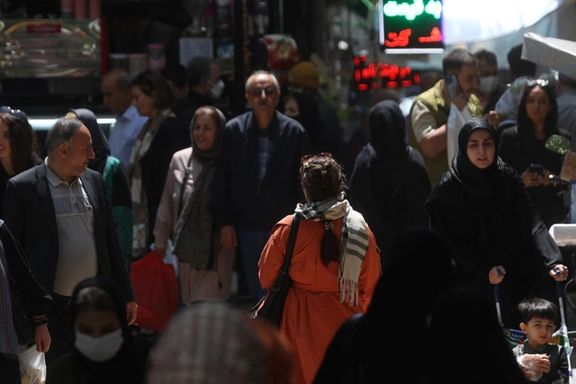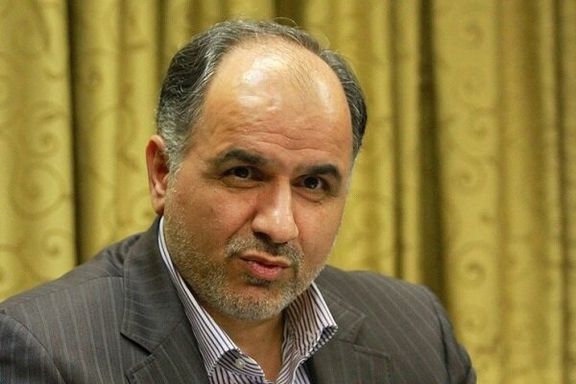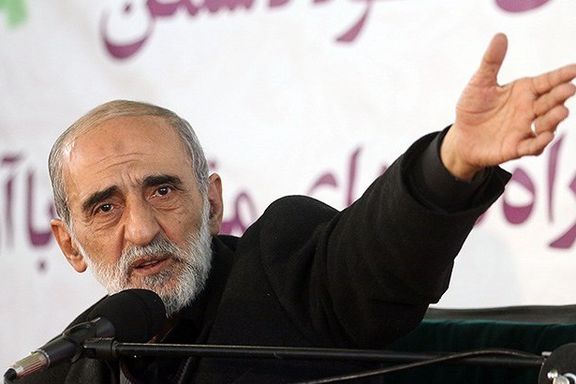Hardliners In Iran Attack New Hijab Bill As Too Lenient

Hardliners in Iran have strongly criticized a government hijab bill and claimed its leniency would only encourage further defiance of hijab rules.

Hardliners in Iran have strongly criticized a government hijab bill and claimed its leniency would only encourage further defiance of hijab rules.
Minister of Justice Amin Hossein-Rahimi said Monday that the government modified and approved the double-urgency bill proposed by the judiciary and would present it to the parliament within the next few days.
The bill is apparently more lenient than a motion by some ultra-hardliner lawmakers in March which has yet not been put to debate in the parliament. The motion proposed a fine of up to $60,000 for unveiling in public.
Iran’s Judiciary operates under the supervision of Supreme Leader Ali Khamenei and their input into the new bill means it must have had his support.

However, politics is more enigmatic in Iran than appearances usually indicate. Firebrand Hossein Shariatmadari, the editor of the flagship hardliner newspaper -- which is funded by the Supreme Leader -- strongly criticized the new bill on Sunday for “reducing punishments in the laws of the country for removing hijab into [small] cash fines.”
“A look at the content of the bill and comparison with the existing laws suggests that the bill has been prepared with the (maybe unintentional) aim of removing the existing legal obstacles [against unveiling] and preparing the ground for the spread of this nasty and abominable phenomenon rather than taking action against unveiling,” he wrote.
Shariatmadari also claimed that some of the women who were arrested for flouting the hijab on the streets have confessed that they were paid $3 per hour, presumably by the enemies of the Islamic Republic.

Tehran Municipality’s Hamshahri newspaper, a once reformist daily which has become ultra-conservative since hardliners took over the city council and in 2021, has also urged the government of President Ebrahim Raisi to revoke the bill.
The newspaper argued that if turned into law it would tie the hands of the police and other hijab enforcers such as civilians who practice ‘amr-e be marouf’, that is, calling others to enjoin what is good and forbid them from doing what is wrong.
‘Amr-e be marouf’ by vigilantes has caused quite a few disputes and even scuffles in public over veiling between its proponents and women who are now defiantly appearing unveiled.
In April, a 59-year-old woman died of cardiac arrest in hospital in Kerman after a fight broke out when Revolutionary Guards (IRGC) affiliated Basij militia members who assaulted her family over hijab. Apparently, the Basij members ordered a member of the woman’s family to cover her hair, leading to an argument and a scuffle.
A video that became viral on social media in mid-April showed a young woman having a panic attack at a shopping arcade in Babol in northern Iran. The incident happened as a fight broke out when Basij militia tried to arrest some shopkeepers over hijab and fired their guns into the air during the scuffle.
In the past two months hardliners have intensified their efforts to enforce veiling laws more forcefully to put a stop to women’s increasing defiance of the compulsory hijab. Since popular protests after Mahsa Amini died at the hands of the morality police last September, many women walk in the streets without hijab.
Many, even some women who wear the hijab by choice, are against government interference in the matter which they think should be a personal choice.
“Better just say they should put a machine gun at the Revolution Square and kill those with inadequate hijab one by one,” Hossein Ghadiani, a former Kayhan journalist who has become critical of hardliners, told Shariatmadari in an audio file posted on Telegram post Tuesday. “What is it exactly that will satisfy you? Throwing 85 percent of the people in the sea to drown?”